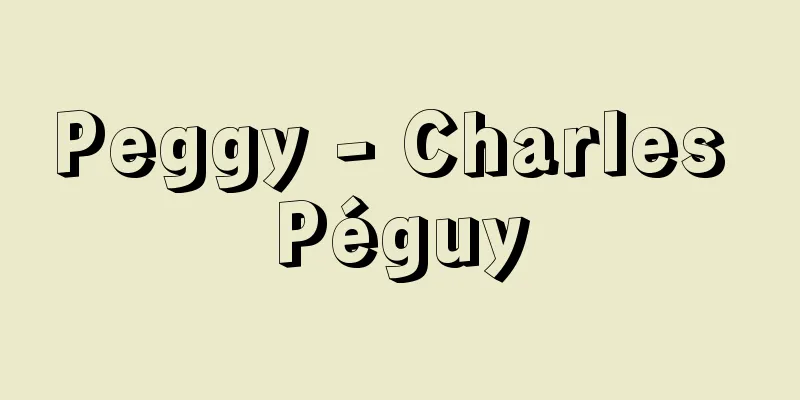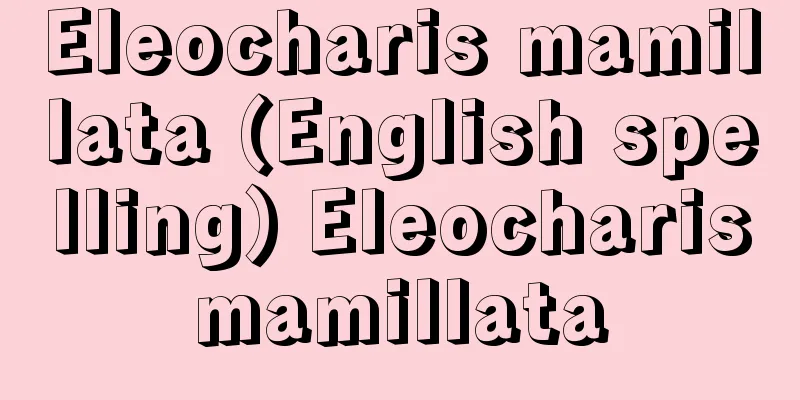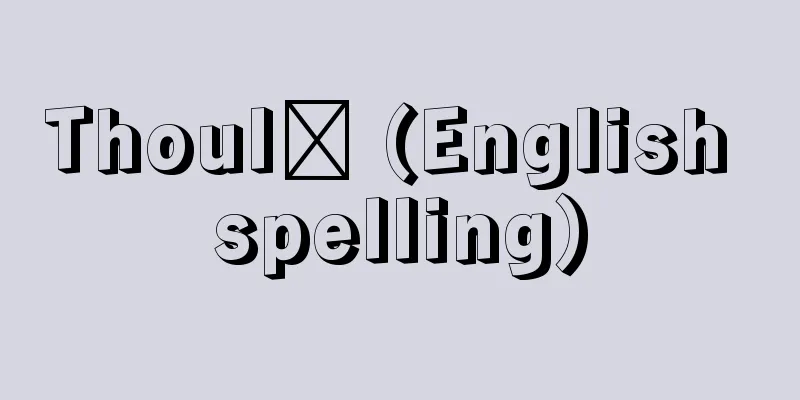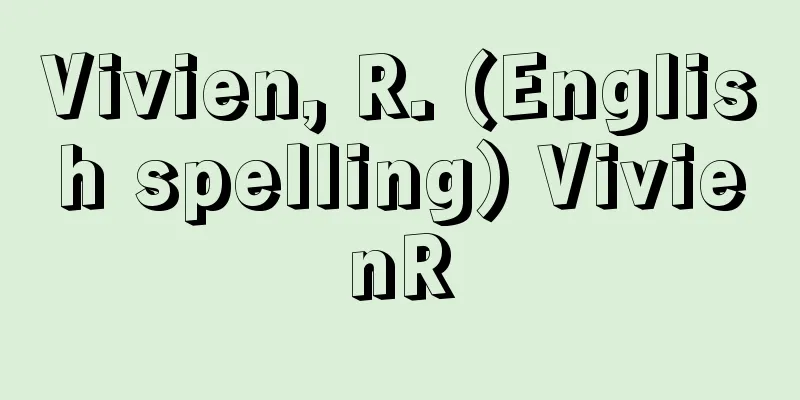Peggy - Charles Péguy

|
French poet, playwright, and thinker. Born in Orléans. His father, a joiner, died when he was a few months old, and he was raised by his mother, a chair repairer, and his grandmother. He fondly remembered this childhood and prided himself on being a son of the people for the rest of his life. He went to Paris to enter the École Normale Supérieure (Ecole Normale Supérieure), and soon after, influenced by his senior, Jaurès, he devoted himself to socialist activities. In the Dreyfus Affair, he fought passionately as a supporter of the retrial, seeking justice and truth, but later, as he lamented in Our Youth (1910), "Everything begins with mysticism and ends with politics," he became disillusioned with the political compromises of his comrades, and in 1900, he founded the magazine Cahiers de la Quinzaine (Half-Moon Notebook) in order to establish a place for true and free speech that would remain true to mysticism. The magazine overcame many crises and was published until Peguy's death in battle. He used it as a venue for publishing his own works and also provided a forum for the publication of works by Romain Rolland, Suarez, and the Tharaud brothers, among others, making a major contribution to French literature in the early 20th century. He attended Bergson's lectures and was influenced by his ideology of anti-intellectualism and faith in life, and harshly criticized the rigid positivism of the Sorbonne professors. He also warned of the threat of Germany and promoted militant patriotism, and was at odds with the pacifism of his old friend Jaurès and others. He also denounced the materialistic tendencies of modern society and advocated solidarity and republicanism among the people. He converted to Catholicism around 1908, and became a mystical poet around 1910. In his free verse work Mystic Plays of Charity of Joan of Arc (1910), which is an advanced version of his debut work Joan of Arc (1897), and the subsequent Mystic Plays, he sings of the mysticism of incarnation, in which spirituality (eternity) is inserted into flesh (temporelle). His fixed-form poem Tapestry of the Virgin (1913) contains the famous "Dedication of the Beauce to Our Lady of Chartres." His swan song, Eve (1913), is a magnificent epic poem of over 7,600 lines in quatrains, dealing with human misery and greatness, and the salvation of the soul. His poems are repetitive, and have a resemblance to medieval litanies. He was killed in action at the Battle of the Marne shortly after the outbreak of World War I. [Chiyo Maruko June 17, 2015] "Hirano Imao's translation of "Half Moon Notebook" (1942, Shoshinsha)" ▽ "Isomi Tatsunori's translation of "Our Youth - People Who Lived Through the Dreyfus Affair" (1976, Chuo Shuppansha)" ▽ "Charles Péguy, translated by Yamazaki Yoichiro, "Dialogue with History - Clio" (1977, Chuo Shuppansha)" [References] | | | | |Source: Shogakukan Encyclopedia Nipponica About Encyclopedia Nipponica Information | Legend |
|
フランスの詩人、劇作家、思想家。オルレアンに生まれる。生後数か月で指物師の父を失い、椅子(いす)直し職人の母と祖母に育てられる。彼はこの幼年時代を懐かしみ、終生民衆の子を自負した。パリに出て高等師範学校(エコール・ノルマル・シュペリュール)に入学、まもなく先輩ジョレスの影響で社会主義活動に専念。ドレフュス事件では、正義と真実を求める再審派として熱烈に戦うが、のちに『われらの青春』(1910)で「すべてはミスティックに始まりポリティックに終わる」と慨嘆するように、同志の政治的妥協に幻滅し、あくまでミスティックを貫く真実で自由な発言の場を確立するために、1900年『半月手帖(はんげつてちょう)』Cahiers de la Quinzaine誌を創刊。同誌は幾多の危機を克服してペギーの戦死まで刊行された。彼はこれを自作の発表機関とすると同時に、ロマン・ロラン、シュアレス、タロー兄弟らに作品公表の場として提供し、20世紀初頭のフランス文学に大きな貢献を果たした。 彼はベルクソンの講義を聴講して反知性主義、生への信仰などの思想的影響を受け、ソルボンヌ大学教授たちの固陋(ころう)な実証主義を厳しく批判した。またドイツの脅威を警告して好戦的な愛国心を鼓吹し、旧友ジョレスらの平和主義と対立、さらに近代社会の唯物論的傾向を告発し、民衆の連帯と共和主義を主唱した。1908年ころカトリックに回心、1910年ころから神秘主義的詩人となる。処女作『ジャンヌ・ダルク』(1897)を深化した自由詩形の『ジャンヌ・ダルクの愛徳の神秘劇』(1910)とそれに続く神秘劇には、精神性(スピリチュエル)(永遠)が肉身性(シャルネル)(現世性(タンポレル))に挿入される託身(アンカルナシオン)の秘義が歌われている。定型詩『聖母の綴織(つづれおり)』(1913)には有名な「シャルトルの聖母にボース地方を捧(ささ)げる詩」が含まれている。彼の白鳥の歌『エバ』Eve(1913)は四行詩、7600余行の壮大な叙事詩で、人間の悲惨と偉大、その救霊を扱う。彼の詩は反復が多く、中世の連祷(れんとう)に通うものがある。第一次世界大戦勃発(ぼっぱつ)直後マルヌの戦いで戦死した。 [円子千代 2015年6月17日] 『平野威馬雄訳『半月手帖』(1942・昭森社)』▽『磯見辰典訳『われらの青春――ドレフュス事件を生きたひとびと』(1976・中央出版社)』▽『シャルル・ペギー著、山崎庸一郎訳『歴史との対話――クリオ』(1977・中央出版社)』 [参照項目] | | | | |出典 小学館 日本大百科全書(ニッポニカ)日本大百科全書(ニッポニカ)について 情報 | 凡例 |
<<: Beggiatoa (English spelling)
>>: Power (English spelling) - power
Recommend
Pipistrellus savii (English spelling) Pipistrellussavii
…[Yoshiyuki Mizuko]. . . *Some of the terminology...
Maha Bandoola
1782‐1825 Commander of the Burmese army during the...
Hunting pants - Karibakama
A type of court noble clothing. Hakama worn with ...
Chiroptera
…A general term for mammals belonging to the orde...
Neurosurgery - Nougeka (English spelling)
This is a medical specialty that deals with surgi...
Wild Goose Bath - Ganburo
〘Noun〙 A custom said to involve gathering up falle...
Earth Tides
Changes on Earth caused by the gravitational forc...
Mount Futatabi - Mount Futatabi
This mountain is in the Rokko Mountains, located ...
Qiu Feng-chia
…A republic founded by Taiwanese military officia...
Peony (Shakuyaku) - Paeonia albiflora; peony
A perennial plant of the Paeoniaceae family. It is...
Voter list - Senkyoninmeibo
A list of names, addresses, sex, dates of birth, ...
La jeune Parque (English spelling)
…He also wrote “Introduction to the Method of Leo...
Kitasaga
...It is found in both the Okura and Izumi school...
Immanuel
(immānūél) A title for Christ. It means "God ...
Novalis - Novalis (English spelling)
A poet representing the German Romantic movement....









